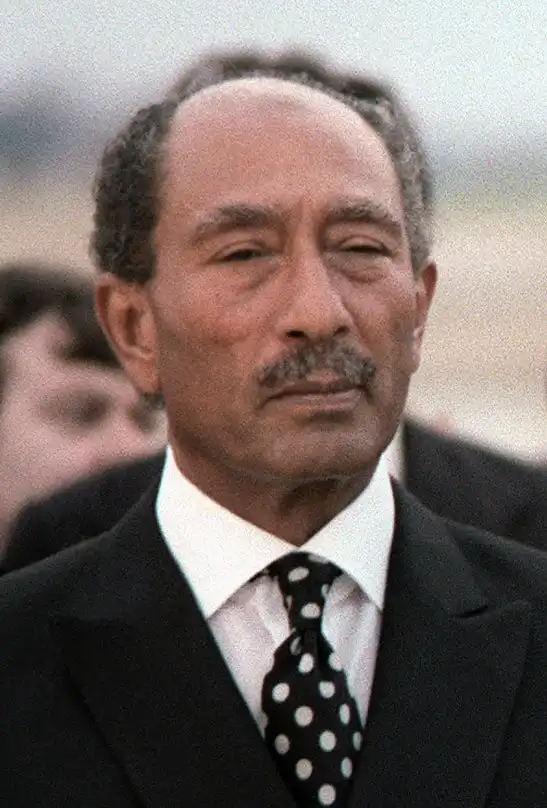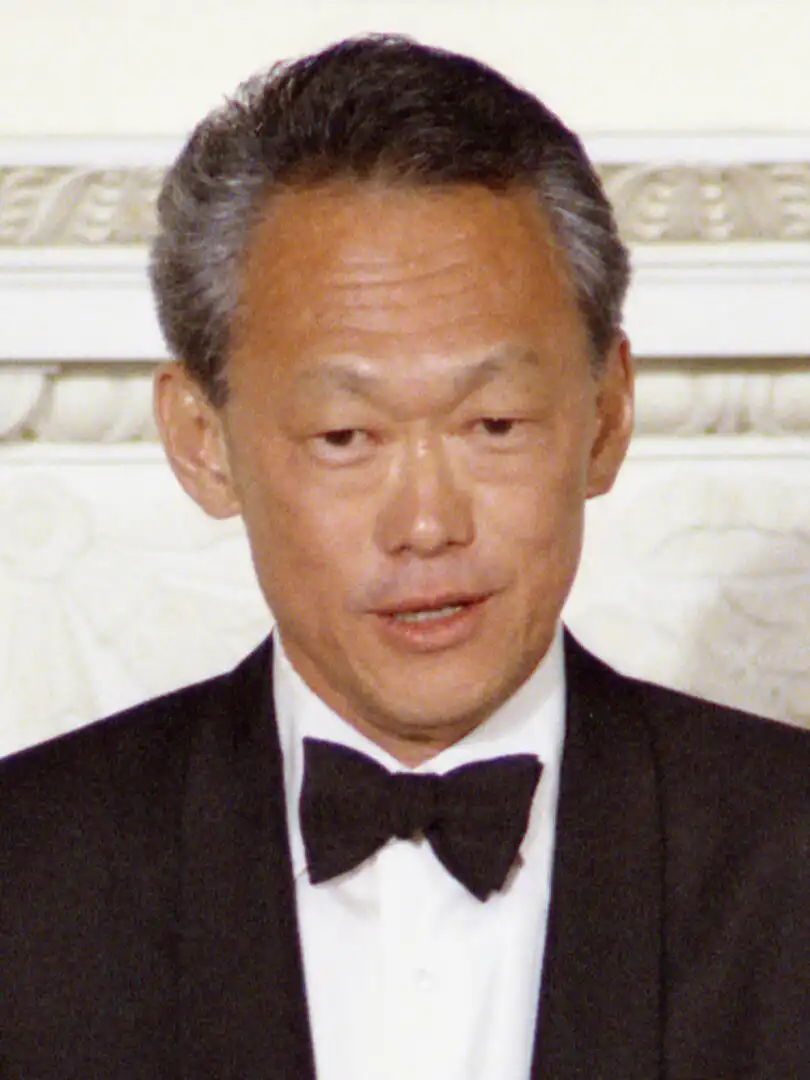About the Author – Henry Kissinger
Henry Alfred Kissinger, the author of “Leadership: Six Studies in World Strategy,” was a veteran soldier who served in World War II, a diplomat, and a political scientist. He served as the National Security Advisor (NSA) and the United States Secretary of State under the administrations of Richard Nixon and Gerald Ford. Additionally, he taught History at Harvard University and was awarded the Nobel Peace Prize in 1973, the Presidential Medal of Freedom, and other awards. In his book, Kissinger analyses the lives of six great political leaders. He presents his analysis with historical case studies and political events as evidence of their superiority.
Konrad Adenauer: The Strategy of Humility
Konrad Adenauer was a passionate civil servant and a nationalistic leader who was poised to rebuild Germany’s economy, turbocharge the morale of Germans, and join the Western camp in the Cold War. Konrad had served as Lord Mayor of Cologne for sixteen years. Before being dismissed by Hitler, he observed the rise of the Nazi party and how Hitler brainwashed Germans and most notably the youth.

In 1933, Hitler became chancellor and pushed through the Enabling Act, giving him overriding authority. Konrad opposed these harsh measures and was fired. After a failed assassination plot by the Prussian Army, Hitler imprisoned anyone who resisted his rule. Thus, in late 1944, Konrad was arrested and subsequently imprisoned. During his imprisonment, he witnessed executions from his cell window, including that of a sixteen-year-old boy, whilst from above him he heard the screams of his fellow inmates being tortured.
In 1945, Konrad’s son Max, serving in the German Army, secured his release. Upon regaining his freedom, he witnessed his country devastated by war and occupied by the Allied Forces. He was reinstated as mayor but was dismissed again after the city was transferred to British authority as per the Potsdam Agreement. Despite Germany’s defeat at the end of World War II, Konrad remained hopeful, refusing to be disheartened by the country’s depleted infrastructure and morals.
Konrad Adenauer was a dedicated student at the University of Bonn, known for revitalizing his energy by submerging his feet in a bucket of water. In 1945, he founded the CDU and established its political philosophy on democracy, social conservatism, and European integration, rejecting Germany’s recent history of totalitarianism. In 1946, at Westphalia, he solidified his leadership of the party, and two years later, he was elected as the Chancellor of Germany.
As chancellor, Konrad Adenauer worked to reunite Germany through humility, focusing on accepting defeat, gaining the confidence of the victors, building a democratic society, and fostering a united Europe. He also emphasized the importance of ties with the West, particularly the United States, to restore Germany’s global standing.
In 1949, Konrad Adenauer negotiated Germany’s accession to the Council of Europe. He established friendly ties with France, leading to the creation of the European Coal and Steel Community in 1950. Within two years of becoming chancellor, Adenauer had strategically achieved Germany’s participation in European integration.
In 1952, Stalin’s regime proposed a plan to reunite Germany under the condition of neutrality, but Konrad Adenauer refused. Three years later, Germany joined NATO, leading to the formation of West Germany as a sovereign state. Willy Brandt followed Konrad’s principles and introduced “Ostpolitik” as chancellor of West Germany in 1969, opening up to the communist world while maintaining alliances.
Germany’s integration with its European allies and cordial relationship with its Eastern neighbors marked the rise of a better and far superior Germany under the legacy and principles of Konrad, who had a vision in 1949. In November 1989, the Berlin Wall fell and finally on October 3, 1990, East and West Germany reunited into the Federal Republic of Germany, fulfilling Konrad’s vision after World War II.
Today Germany is a major financial hub of the European Union and a relatively peaceful country that has strong ties with the United States and its historical adversaries, Britain and France.
Charles De Gaulle: The Strategy of Will
In the early stages of World War II, German forces quickly took over Belgium, the Netherlands, and Luxembourg, and advanced into France. In May 1940, Colonel De Gaulle was promoted to Brigadier General due to his exceptional and effective leadership in thwarting the German invasion of Belgium. Shortly after, Paul Reynaud, the Prime Minister of France, personally selected De Gaulle as his Undersecretary of Defense.

In June 1940, France signed a ceasefire agreement with Germany, resulting in the German occupation of the entire Atlantic Coast and half of France. Free French Forces were established to liberate and rebuild French society through an announcement on BBC. Upon his arrival in London, with only his uniform and sheer determination, he was ready to reclaim France.
Britain and the United States in 1941 fought to defeat the Axis powers. De Gaulle shared these aims but was focused on renewing the soul of France. He skillfully persuaded Churchill to support free French soldiers and later led a mission to liberate his country.
He, therefore, decided to focus on creating a geographical base for legitimacy by rallying to his side the dispersed fighting forces of the French Empire. He traveled across its scattered colonies in Africa to detach them from the Vichy (surrendered government in France) as the first step to the liberation of the motherland. With a small force, De Gaulle defied the odds and took the French colonies in Africa under his command. He enjoyed the popularity of a celebrity in France.
By 1944, De Gaulle was leading the Free French Committee of National Liberation (CFLN) Through which he outmaneuvered his political rivals and far less subtle generals. By August, the Allied Powers and Free French forces were able to take back Paris from Germany.
After the Allied forces won World War II, De Gaulle rebuilt the French army but faced opposition from narrow-minded politicians. Tired of the constant conflicts, he resigned in 1946 and went into self-imposed exile, leading to a tumultuous decade for France marked by political disunity and the threat of civil war.
In 1958, President Coty invited him to become the last prime minister of the Fourth Republic of France and to introduce a new constitution for the Fifth French Republic. De Gaulle later introduced a new and much stronger constitution in 1959 and was elected as the President of France of the Fifth French Republic.
Upon taking charge of the presidency, De Gaulle masterfully engaged with the United States and further solidified France’s position in Europe. He was driven by a strong sense of national pride and independence. His efforts to maintain France’s sovereignty, even amidst the dominance of the United States and the Soviet Union, are framed as acts of sheer will and vision for a uniquely French role in the world.
Under his leadership, France became the world’s 4th nuclear power, initiated economic cooperation with its former adversaries–Germany, and Britain, strengthened its position in the NATO alliance, and reunited France. President Charles De Gaulle resigned in 1969 following his increasing unpopularity and failing health.
Today, France is one of the strongest powers on the world stage in possession of the veto power in the UNSC and is an economically developed and influential country in the European Union.
Richard Nixon: The Strategy of Equilibrium
Richard Nixon was profoundly famous for his foreign policy achievements, especially his opening to China and détente with the Soviet Union are portrayed as efforts to balance the power during the Cold War. Kissinger emphasizes Nixon’s ability to maneuver diplomatically even amidst domestic turmoil.

In 1968, Richard Nixon was elected as president during a challenging time for the United States, which included military losses in Vietnam and potential nuclear threats from the Soviet Union. Nixon appointed Kissinger as his NSA and together they developed a new foreign policy aimed at addressing challenges from the East and initiating diplomatic negotiations with Hanoi for the withdrawal of US troops from Vietnam.
Nixon’s foreign policy was characterized by a dual approach of strengthening American power and alliances while maintaining a dialogue with adversaries like the Soviet Union and China. Under Kissinger’s guidance, Nixon pursued diplomatic relations with China, culminating in his visit to China in 1972. This approach isolated the USSR from China and utilized the latter as a crucial channel for negotiations with Hanoi.
In this section, Kissinger discusses that during the time of Soviet Union isolation, Nixon’s engagement profoundly changed the Soviet perspective. The Moscow summit signaled the USSR’s desire to stabilize relations. This led to the signing of SALT-1, ABM, and “Incidents at Sea” agreements, symbolizing a commitment to peace and reducing the volatility of the nuclear arms race.
Kissinger’s adept maneuvering under Nixon laid the groundwork for the Helsinki Accords in 1975. US diplomacy aimed to undermine the Soviet system. Kissinger’s efforts in engaging with China and Hanoi were successful, resulting in a brokered agreement for US withdrawal from Vietnam by 1975. Later, Henry Kissinger was honored with the Nobel Peace Prize in 1973.
Richard Nixon achieved numerous foreign policy accomplishments. However, he faced domestic turmoil, which ultimately led to his resignation due to the Watergate scandal in 1974. Despite this, he played a pivotal role in foreign policy that contributed to the eventual demise of the USSR during Ronald Reagan’s administration.
Anwar Sadat: The Strategy of Transcendence
Anwar Sadat’s courageous and forward-thinking decision to untether Egypt from Soviet influence and pursue peace with Israel after the Yom Kippur War of 1973 is celebrated as an act of visionary leadership. Kissinger also lauds Sadat for his strategic wisdom in realigning Egypt with the West and reshaping the landscape of the Middle East.

Kissinger argues that he met Anwar Sadat multiple times during shuttle diplomacy to negotiate the return of the Sinai Peninsula, which Israel was reluctant to return due to it being surrounded by hostile neighbors and the possibility of another war with Egypt. Kissinger saw Sadat as a realistic and nationalist personality who refused to be bullied or blackmailed by the USSR when they stopped supplying military weapons to the Egyptian Army.
As a visionary leader, Sadat initiated the Yom Kippur War to strengthen Egypt’s diplomatic position at the negotiating table, and he succeeded. Unlike Gamal, Sadat was committed to achieving peace in the Middle East rather than engaging in conflict.
Charismatic leaders like Gamal Nasser built their political strategies around mesmerizing and deceiving the masses. Their inspiring speeches and presence aimed to overshadow the harsh realities of daily life. Arab leaders were inflexible and offered minimal opportunities for collaboration even among themselves, but Sadat broke from tradition. His ultimate goal was to negotiate a peace deal with his adversary step by step. He successfully negotiated the Sinai Peninsula peace deal with Israel and later shocked the entire Arab world by visiting the Knesset in 1977. His strategy of transcendence opened new doors for cooperation, ultimately leading to the Camp David Accords, in 1978 during Jimmy Carter’s administration, and the official recognition of Israel.
Later on, following the footsteps of Sadat, the PLO signed the Oslo Accords and Arab states found peace through the Abraham Accords. Sadly, Sadat was met with extreme pressure and hostile rhetoric from its Arab neighbors and hatred among Egyptians. Anwar Sadat was assassinated by a group of soldiers of the Egyptian military while reviewing a military parade in 1981.
Lee Kuan Yew: The Strategy of Excellence
Lee Kuan Yew is depicted as a legendary state-builder who turned a city-state notorious for pollution, and being the global capital of malaria with little resource power, to an economic powerhouse. Henry Kissinger claims that the strategy of excellence is reflected in Lee’s commitment to meritocracy, discipline, and vision as key to Singapore’s success.

In the early 1960s, as the anti-colonialism movement gained momentum worldwide, the British decided to withdraw from Singapore, leaving it vulnerable to communism and potential aggression. Lee Kuan Yew sought to form a federation in 1963 for protection, but due to governance and Singapore-Malaysian relations, Singapore was expelled in 1965.
Lee saw Singapore’s protection as a fundamental aspect of safeguarding itself from communist guerillas and propaganda in the region. Kissinger first saw Lee Kuan Yew personally during his visit to Harvard in 1968, where he argued that the presence of the US in Southeast Asia was essential to protect its interests.
Lee implemented a system of meritocracy and capitalism to attract foreign companies to Singapore. He also instituted mandatory community and military service for all Singaporeans, fostering unity and harmony among the youth. Lee’s exceptional statecraft even drew the attention of China’s leader Deng Xiaoping, who, despite previously labeling Singapore as the “lapdog of Western imperialism,” visited the country in 1978 to learn from its economic success.
Today, Singapore is the fourth Asian Tiger and one of the richest countries per capita in the world. Lee’s vision of establishing a state-of-the-art bureaucracy structure and educational policies has transformed Singapore.
Margaret Thatcher: The Strategy of Resilience
Margaret Thatcher’s leadership during a time of economic, political, and territorial turmoil in Britain is framed as a testament to the power of conviction. Kissinger details how her determination and uncompromising ability helped Britain reassert its role in global politics.

In 1975, Margaret assumed leadership of the conservative party, becoming the first woman to take charge of the conservative party in the UK. Through her remarkable political maneuvering and in the midst of rising inflation, Margaret became prime minister in 1979. Upon assuming office, she faced numerous domestic and geopolitical dilemmas with grace and grit.
Henry Kissinger emphasizes the positive impact of Thatcher’s resolute leadership on the strengthening of the US-UK alliance, elevating it to a special relationship. Her firm and principled approach enabled the UK to assert itself in the face of both adversaries and allies. Her steadfast commitment to upholding the interests and territorial integrity of the UK proved pivotal in thwarting Argentina’s aggression during the Falkland War and in addressing the terrorist activities of the IRA in the UK.
Her outstanding economic reforms attracted global investors to the UK and transformed London into a leading international banking center. She fostered positive relations with the USSR and European states while steadfastly defending the UK’s sovereignty. Unfortunately, her refusal to compromise ultimately led to her political downfall in 1990.
Henry Kissinger’s book concludes with a call for the next generation of leaders to combine wisdom with a deep sense of moral purpose. He suggests that the challenges of our time require leaders who can balance power with principle and require a proper vision to lead their nation as the six leaders in his book reflected. The future of the world order depends on leaders who can navigate the complex realities of the modern world while staying rooted in the values of peace, justice, and human dignity.
If you want to submit your articles, research papers, and book reviews, please check the Submissions page.
The views and opinions expressed in this article/paper are the author’s own and do not necessarily reflect the editorial position of Paradigm Shift.
He is studying international relations at the University of Central Punjab,






